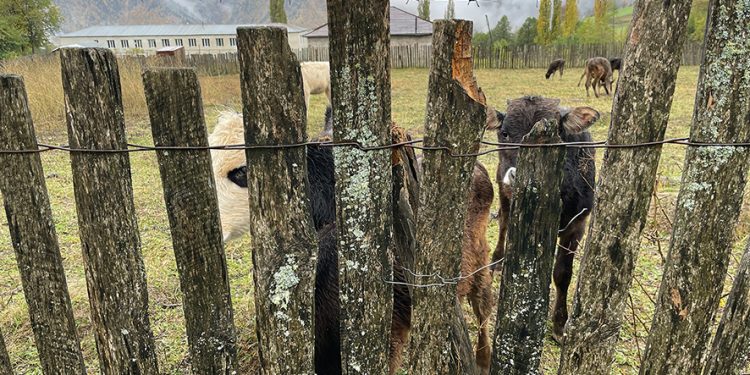One of the big ongoing jobs in Georgian village life is the maintaining of one’s boundaries. In this case, the physical ones, not the mental or social ones: the fences, which keep out unwanted animals from one’s property. I have written about this before, but it seems to be a subject to which one can add more detail as time goes on.
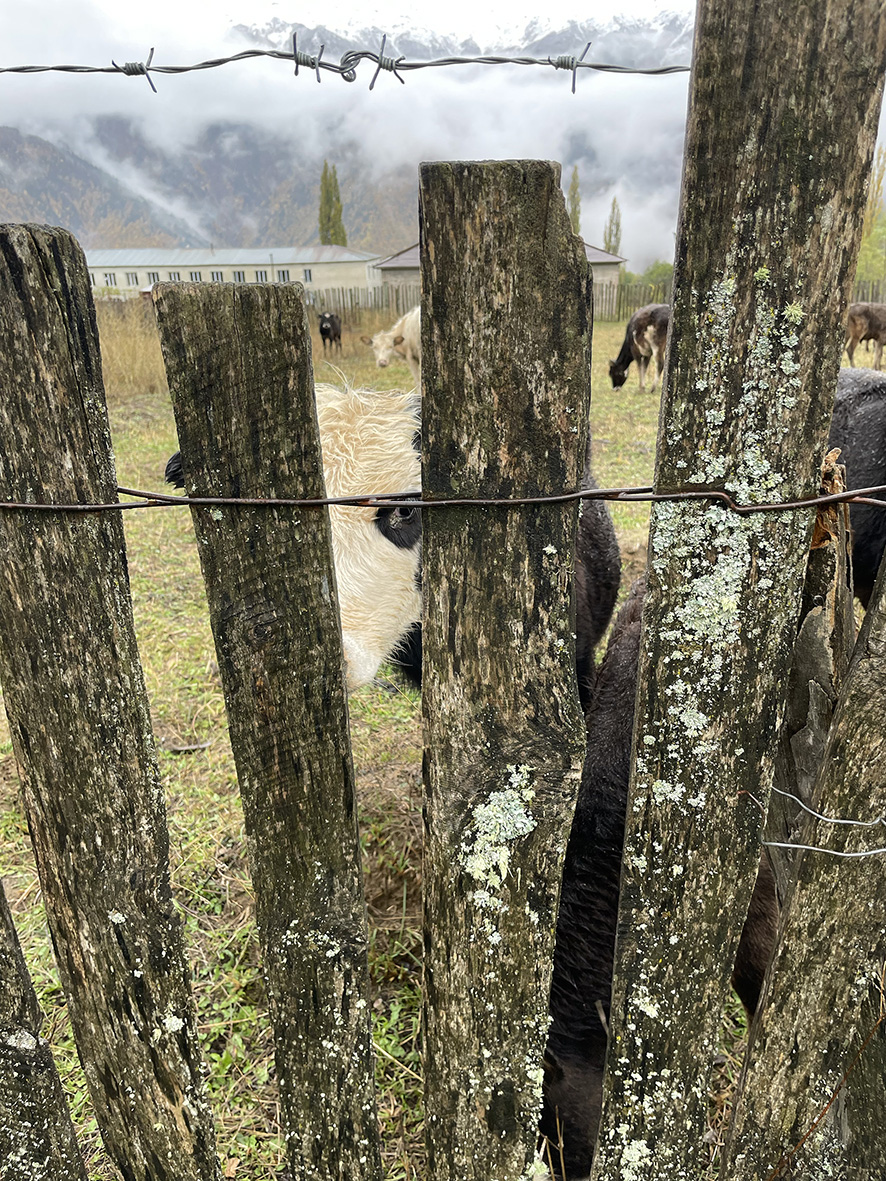
What animals? Cows, here, top the list, as they are the most common domestic animal in Svaneti. Their chief approach is to “test a fence to destruction”, mainly from the top, as their main weapons- shoulders and horns -are high up. So we try to intimidate them with fence posts and vertical slats which are high enough; possibly weaving in some horizontal ones at the top. Barbed wire all along the top of the fence, too, is a good deterrent. It’s beastly to install, grabbing everything it can as you unroll and bend and tighten it into position. Best wear cheap work gloves instead of expensive ones, as they’re going to get shredded in one session anyway!
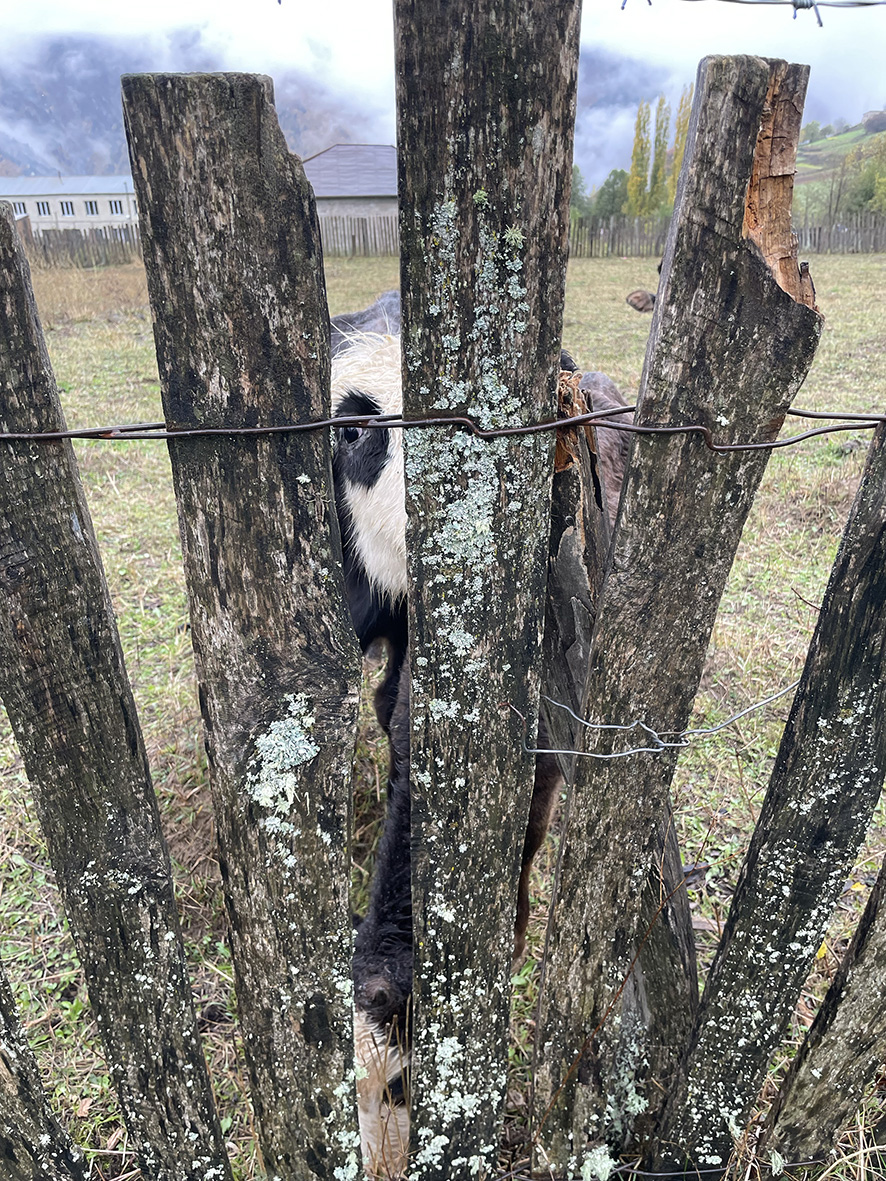
Pigs here are diggers, mostly for potatoes, and in any case are much shorter than cows. So your fence wants to be right down to ground level, and possibly with another run of barbed wire down there too in areas where you expect trouble, to stop their sensitive snouts from pushing through.
Sheep and goats here are much rarer, while horses won’t enter unfamiliar land. So the above measures are all proof against these, too.
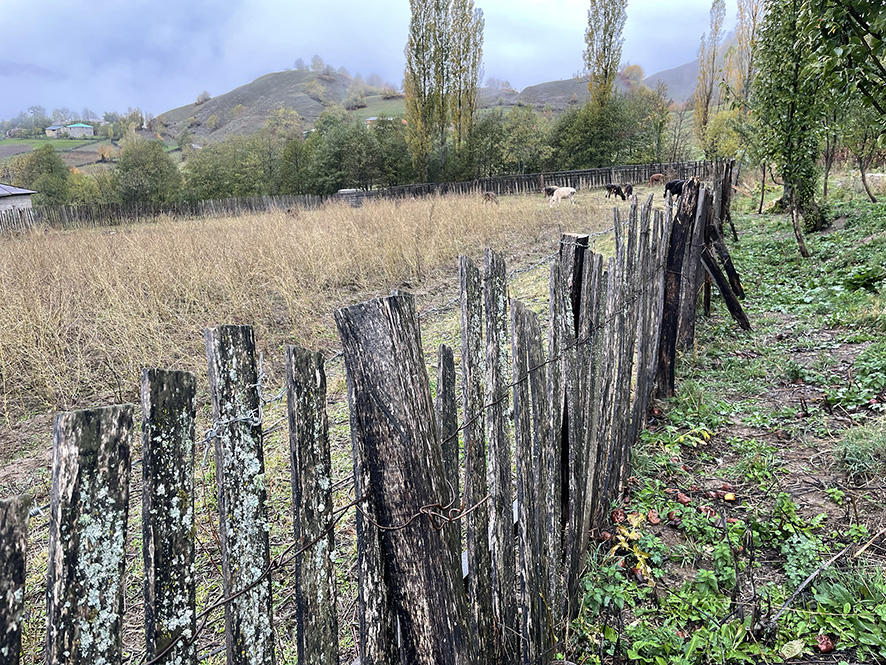
Dogs will look for any pair of slats which can be nosed around enough to squeeze through the resulting gap, so keep the lower slat wires tight!
Recently, Lali’s nephew, a monk in Nekrisi, brought his whole monastery here for a holiday. We left them to it for a week, as they would be cooking and cleaning for themselves and anyway had requested that we close the guest house to other visitors during their stay. But they also did some very useful practical work during our absence, mainly re-doing the entire 100m upper fence with new oak posts and pine slats, alternating the new slats with old ones to stretch them out. With 20 men to choose from, all villagers, the job will get done. This was a huge help to me, as it’s a minimum two-person job and Lali certainly has her hands full on a daily basis.
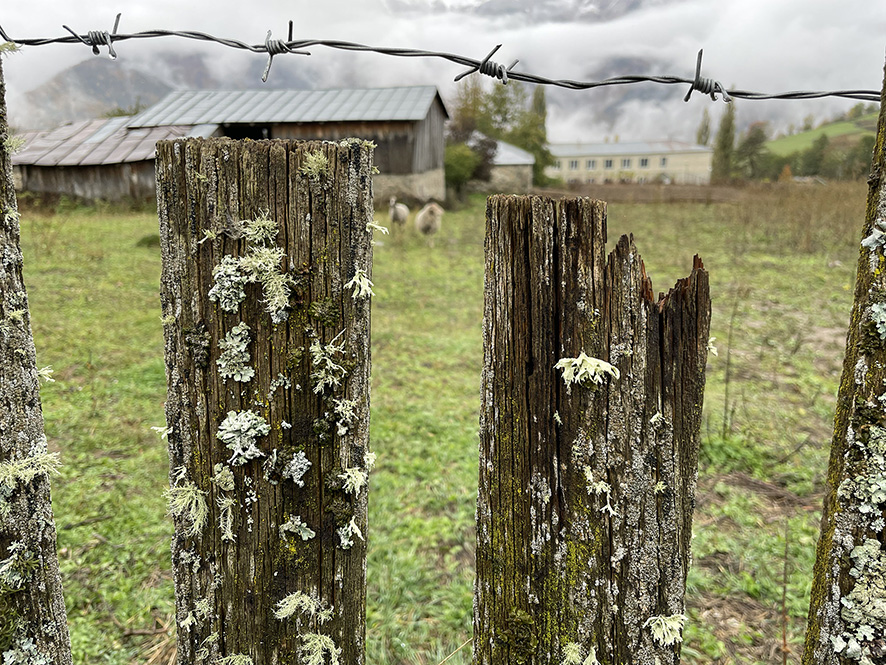
Then friends of ours visited from Tbilisi during our last week here before closing up and flying south-east for the winter to the capital. They are a family of four, with two small boys, all of British origin. The father helped me further with the lower fence work, replacing rotted posts and slats and adding the barbed wire there too. This job was on my winterizing list, and it’s a huge relief to have it finished well before we go. All the leftover material we stacked standing up in the barn, to stay dry and either be used next year or be cut up as firewood for the big Svan stove.
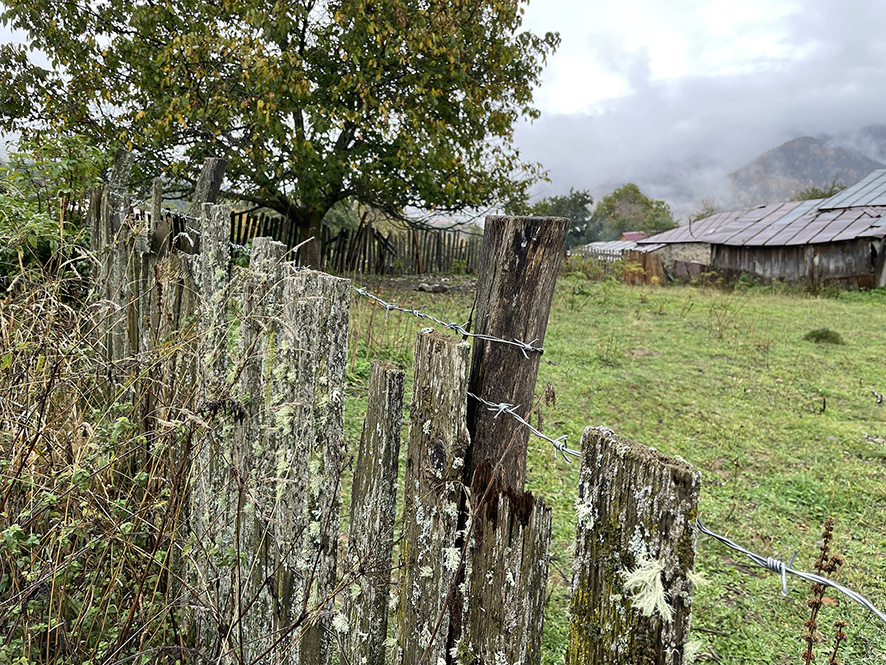
All the flying or winged livestock can get itself over a fence: chickens, geese, ducks, the odd turkey or guinea-fowl. The former make up the greatest majority by far in this group, and your best defense against them is done their particular area of interest: the veggie garden. But if they haven’t discovered it by harvest time, you’re scot-free. This was the case this year for us, and we haven’t had our own chickens (or cows) for a few years now, so, no bother from them.
Moles, voles, mice, stoats or ermines or weasels, foxes, wolves, bears: the former small animals can slip through any fence slat gaps (or dig under them); the larger ones haven’t made a single appearance on our land in our 13 years here. Cats will just jump over, and aren’t a bother in any case. So that’s the list. Properly fenced in, you can rest assured that your land is protected whether you are at home or far away. Not, and not.
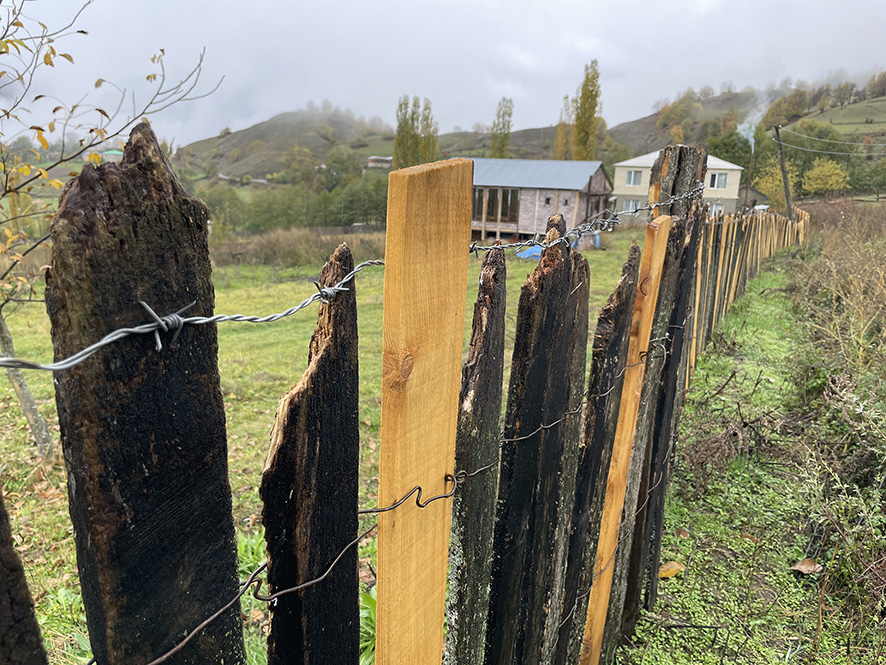
BLOG by Tony Hanmer
Tony Hanmer has lived in Georgia since 1999, in Svaneti since 2007, and been a weekly writer and photographer for GT since early 2011. He runs the “Svaneti Renaissance” Facebook group, now with over 2000 members, at www.facebook.com/groups/SvanetiRenaissance/
He and his wife also run their own guest house in Etseri: www.facebook.com/hanmer.house.svaneti

